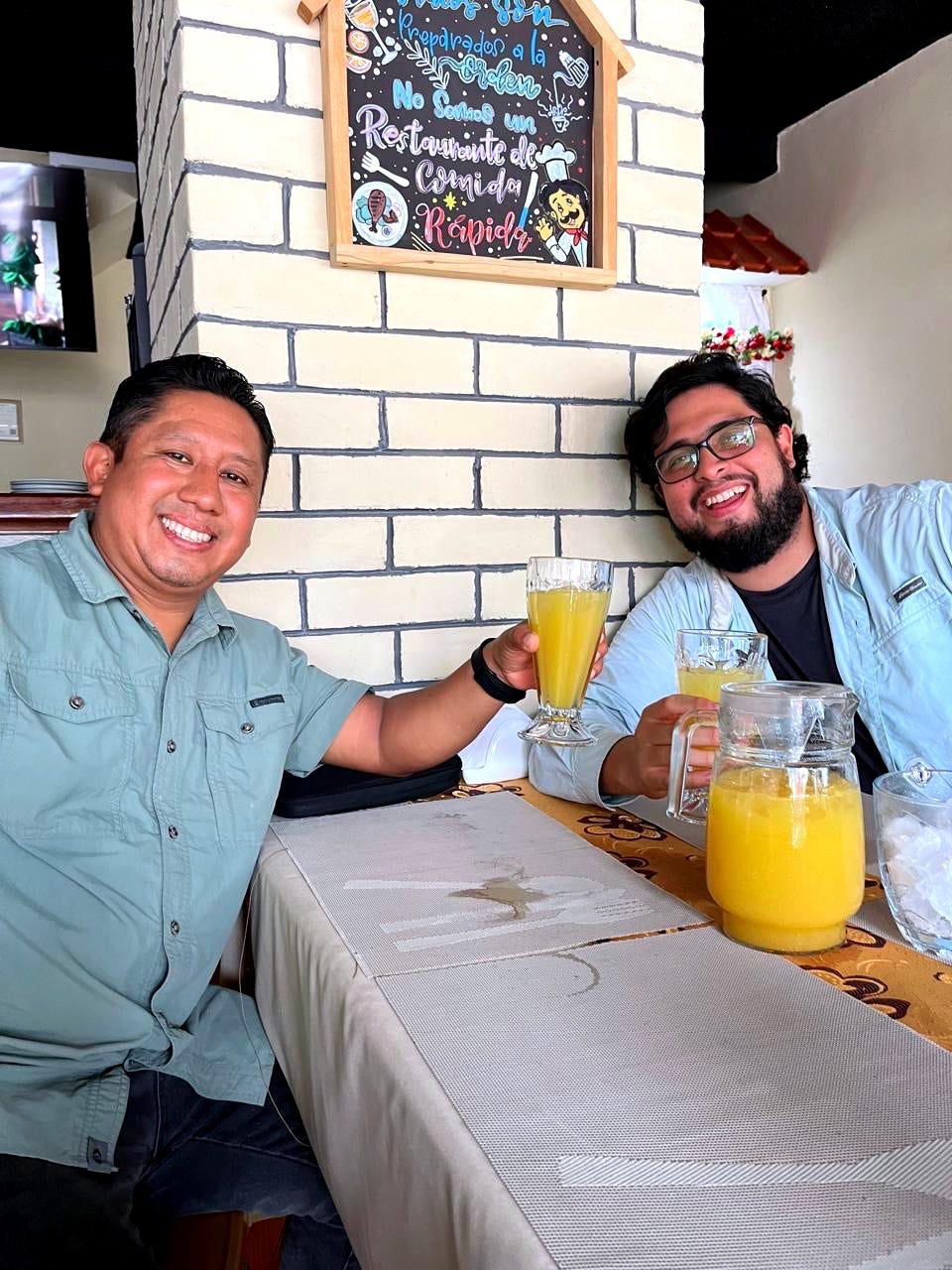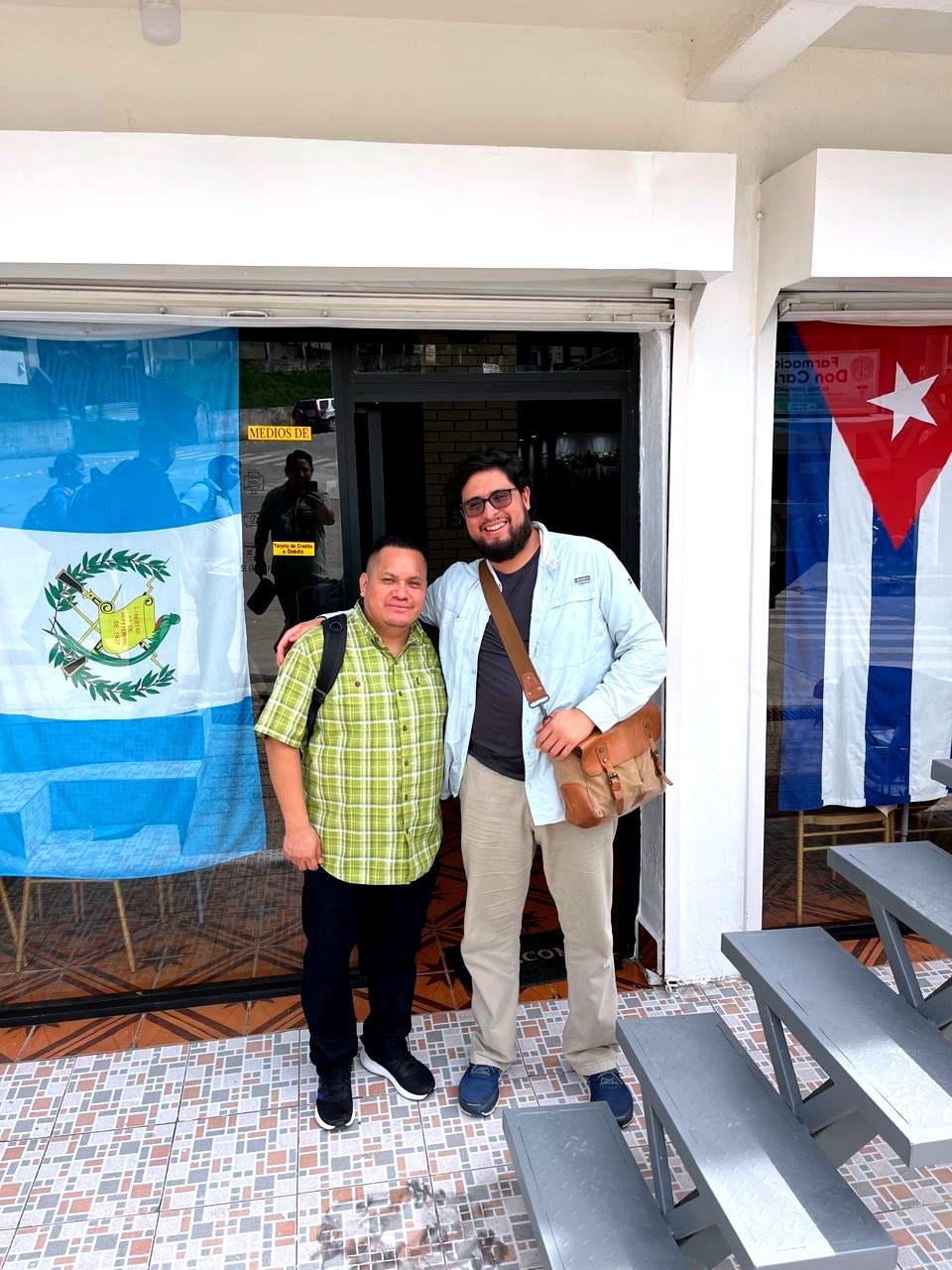I recently came back from a trip to the region of Ixcán in Guatemala. This is a very remote place that experienced some of the worst of the Guatemalan war. I was there to deliver a class on contextual Bible reading and theology to some local pastors and church leaders. For the last couple of weeks I have shared stories, reflections, and the theological insights that I learned through my experience there, for the pastors and leaders were my teachers, not the other way around. You can find the first two deliveries of this series below. Make sure you read the second one before this one.
The account today is about how one of the pastors saw his story and the stories of the women in his community in the story of Hagar.
We are back from the coffee break. It feels as if time is going really slow. There is a lot of content to cover. I don’t know if we will get to all of it. The environment just feels heavy. Perhaps, it’s just me. I am not used to the heat. Maybe, it is the beauty and affliction that fills the room. The stories are just too much.
Now, it is time to get back to the questions about context we explored in the story of Hagar. The booklet we are using focuses on the story of Abraham and how God made a promise to him. Hagar, however, is not in the content. But we are going to read about her anyway. The story of Abraham wouldn’t be what it is without Hagar. So, we go to Genesis 16 and read the story to engage in a contextual Bible study.
After talking about the characters, their dialogues, and scenes, one of the pastors asks an important question, “Why is God talking to a slave and promising her the same things he promised to Abraham?” There is some silence in the room for a few seconds as the participants think about the question. Then, a church leader raises his hand and says, “Well, isn’t it because the baby in Hagar’s womb is also the blessing?” And, in the blink of an eye, without much debate and theological wording, the students took a step towards untangling Hebrew nationalism from the sacred text. I am astonished. So, I dare to push the envelope a little further. “Did you know that this is actually the first time God is named by a human in the Old Testament?” I say. They all react in unison, “No way!”
“So, that means that it is an abused slave who names God?” ask the pastors in disbelief. They stay silent, for they feel what the theological and contextual implications of such a question are. Then, I dare to ask, “who is like Hagar in your community?” immediately, the pastor who is sitting in the back, whom I know is a survivor of a masacre, says, “We have many teenage girls and young women who go to the city to work as help in wealthy people’s homes. They go for a few months, and they return with a big belly. They come back pregnant.” He pauses for a few seconds, and with a mischievous smile on his face he says, “It is the Abrahams in the City! They do it!” Again, the Spirit is doing her thing, and I just have the privilege to see her move! The powerful patriarch of the Biblical text is eclipsed by a slave who receives the same promise from God. All the unnamed and abused domestic workers in Guatemala and around the world have a voice, and it is in the biblical text.
I finish the class for the day around 1:00 pm. I can barely walk. I am dehydrated. At this point, I have been teaching for over five hours at 35 celsius (90 Fareinhait) and 89% humidity. Thankfully, lunch is on the horizon.
Five of us go out to a small local restaurant in the center of town, a cuban restaurant. Believe it or not, there is a cuban restaurant in a town in the middle of the jungle in Guatemala. I learn from Walter, one of the leaders of this training initiative, that there is Cuban community in town. They came during the war. They are highly trained humanitarian workers, doctors, nurses, and community developers. After the war ended, they defected and stayed in Ixcán. They formed a community and started from scratch. I am baffled. This place has so many stories.
I order a plate of Vaca Frita with tostones, and a side of arroz con gris. While we eat our lunch, Walter asks one of the pastors, “How does the training today speak to your story? Would you mind sharing it with us? I know you survived a masacre.” The man stays silent for a few seconds. Then, he proceeds to tell his story with some of the most gruesome details I have ever heard in a first hand account of the war. After pouring his heart out, he looks me in the eye and says: “We escaped the army and fled to the jungle. We spent months hiding in the jungle. There, we became swollen because of the bug bites. In our desperation we went hungry. We saw the soldiers. We knew they were hunting us. We were desperate.” And, all of a sudden, he makes a beautiful connection to our training by saying, “desperate, just like Hagar.”
At this point, I sense, feel, yet barely comprehend how this trip is changing my life, theology, and spirituality. Contextual Bible reading and theology is not an academic exercise. It is the liberation of our consciousness as we see God revealing God-self and speaking to our context while standing in incarnational solidarity with the most vulnerable. The movements of the Spirit cannot be systematized. They can only be believed.
After lunch, we head back to our little hotel. Thankfully, it has AC on every room. All I want is to sleep. But, I have to finish preparing for tonight’s teaching and the followup class in the morning. My body and mind, however, shutdown. I fall asleep for a couple of hours. I know tomorrow is going to be a long day.








Thank you for this reminder Joel!
What's astonishing about the first naming of God is that an abused and forsaken slave girl 2000 years after creation gives a name to her Creator. My father and I were talking recently about the extreme lengths of time that pass before anything like a codification of laws appears among the people of God and even the development of language or the instinct to name God which was previously reserved as an expression of dominion over creation. That members of creation should name their Creator is wild; that God accepts the name given to Godself shows the compassion God has for us especially when we are wronged by one another as seen to be possessions to be cast aside.